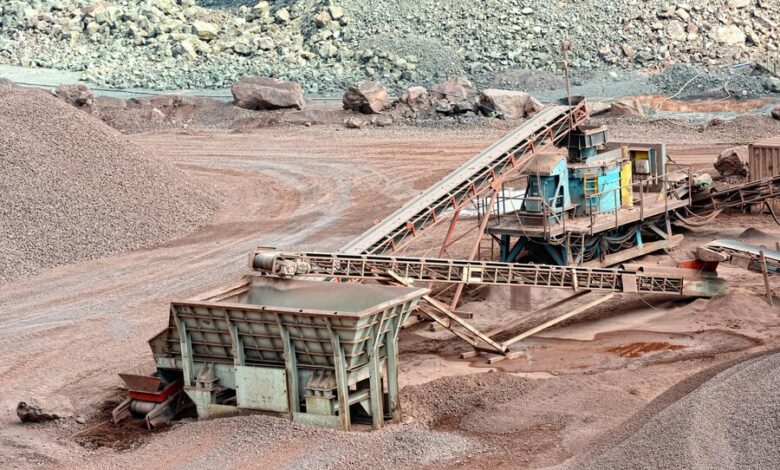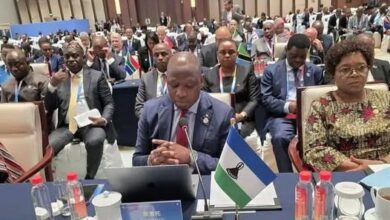Tshiamiso Trust Faces Major Hurdles in Tracing Unpaid Ex-Miners as Thousands Remain Untraceable

The issue of compensation for former miners continues to be a pressing concern for thousands of ex-miners and their families across Southern Africa, particularly in Lesotho, where approximately 7,000 former miners remain untraceable. This has made it difficult for the Tshiamiso Trust and the Medical Bureau for Occupational Diseases (MBOD) to expedite the compensation process owed to these individuals.
This challenge was brought to light during a parliamentary meeting of the social cluster held on Tuesday, where Tshiamiso Trust was invited to provide updates on its efforts to resolve compensation delays for ex-miners. Tshiamiso Trust was established in 2020 to manage the compensation process following a class action settlement between claimant attorneys and six major South African mining companies: African Rainbow Minerals, Anglo American South Africa, AngloGold Ashanti, Harmony Gold, Sibanye Stillwater, and Gold Fields.
The purpose of the meeting was to discuss how Lesotho, South Africa, and other countries in the Southern African Development Community (SADC) can collaborate to address delays and speed up the claims process for ex-miners who were exposed to tuberculosis (TB) and silicosis while working in South African mines.
Claimant Numbers and Compensation Challenges
As of April 27, 2025, a total of 53,629 Basotho—comprising both ex-miners and their dependents—had lodged claims for compensation. However, many of these claims are stuck at the medical examination stage. Of the total claims, 22,841 individuals underwent the necessary benefit medical examinations, yet only 9,063 have been compensated, receiving a total of M827 million. This leaves 44,566 claimants still waiting for their payments.
Lesotho nationals represent 40% of the total compensation paid by Tshiamiso Trust, highlighting the significant number of Basotho ex-miners impacted by the compensation process. Despite this, there are still serious challenges to overcome, including the untraceability of 5,464 Lesotho nationals diagnosed with occupational diseases since 1965.
MBOD data reveals that the regional distribution of ex-miners is not limited to Lesotho. While Lesotho accounts for 12% of the total ex-miner population, Mozambique follows with 9%, Eswatini holds 2%, and South Africa’s Eastern Cape remains the largest region, housing the highest number of affected workers.
The Search for Missing Claimants
Tshiamiso Trust CEO, Dr. Munyadziwa Kwinda, acknowledged the difficulties in setting a clear compensation target for this year, citing the declining number of claims being lodged. He also emphasized that the organization is working on partnerships with grassroots structures in Lesotho to increase claim lodgements. However, Dr. Kwinda noted that, given the existing backlogs, the Trust cannot make definitive commitments regarding the number of claims to be processed in the near future.
During the parliamentary meeting, Rantṧo Mantsi, the Executive Director of the Lesotho Ex-Miners Association, expressed concern over the persistent delays in processing compensation for ex-miners. Mantsi shared instances where claimants were repeatedly asked to resubmit documents without any resolution. One particular case involved an individual who developed mental health issues due to the prolonged wait for compensation after being promised a pay-out five years ago.
The language barrier and financial literacy challenges also contribute to the delays, as many claimants struggle to understand the compensation process when explained telephonically by South African representatives. Mantsi further criticized the Trust for not working more closely with the ex-miners’ council to locate missing claimants. He argued that, with the right resources and information, the council could locate the untraceable individuals within a matter of weeks.
Post-Mortem Issues and Administrative Hurdles
Another pressing issue raised during the meeting was the slow progress on post-mortems, which are necessary for processing claims for deceased miners’ dependents. Dr. Mpeile Mokhahlane, representing the Ministry of Health’s Occupational Health Office, highlighted the lack of progress despite bilateral engagements with MBOD, and emphasized the urgent need for a clear path forward.
Members of parliament, including MP Machesetsa Mofomobe, also voiced frustration over the lack of progress. Mofomobe pointed out that Lesotho has efficient communication structures through local councils and chiefs, making it difficult to understand why claimants cannot be traced in such a small country with well-established governance systems.
Diplomatic Intervention and Collaborative Efforts
Jabu Xaba, the chairperson of the Mining Association of Southern Africa, underscored that the responsibility of tracing untraceable ex-miners lies with MBOD, which, he noted, is underfunded by the South African government. Xaba called for diplomatic intervention to pressure South Africa to allocate the necessary resources to resolve these issues.
The chairperson of the Parliamentary Social Cluster, Mokhothu Makhalanyane, announced plans for a meeting in Cape Town with representatives from nine countries affected by ex-miner compensation issues. “The time for delays is over,” Makhalanyane said. “Basotho must get what is due to them.”
The Path Ahead
The parliamentary social cluster committee has previously engaged with Tshiamiso Trust, and in July 2024, it offered to partner with the organization to raise awareness and disseminate information to ex-miners and their families. The aim is to ensure that eligible ex-miners who contracted TB and silicosis while working in South Africa’s mines receive their rightful compensation.
Despite these ongoing efforts, the challenge of locating untraceable claimants remains a major barrier to resolving compensation delays. Tshiamiso Trust and other stakeholders must work closely together, leveraging local governance structures and international diplomatic channels, to address these challenges and ensure that all ex-miners and their families receive the compensation they are owed.
Join 'Lesotho News' WhatsApp Channel
Get breaking Lesotho news — delivered directly to your WhatsApp.
CLICK HERE TO JOIN



